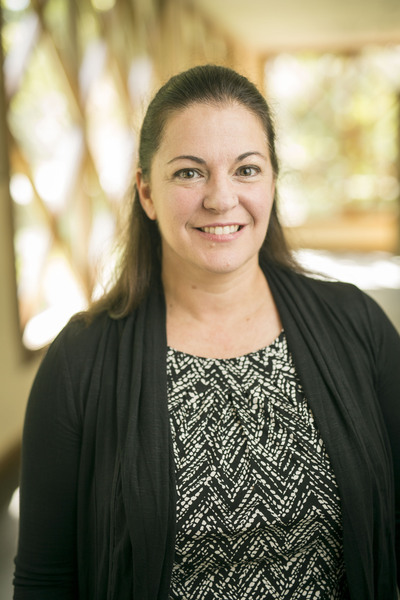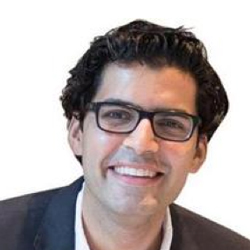
Are you planning to tell people that you’re returning to school? Brace yourself for two responses. The cheerleaders will ooh-and-aah as if you accomplished something, blissfully unaware of the long and punishing road ahead. Despite the mushiness, they’re better than the alternative: the skeptics. They won’t express their doubts to your face, of course — just a taunting pat on your shoulder or a cutting question that reinforces the myths you’ve heard.
The biggest myth goes something like this: From now on, your life is going to be all work and no play. But don’t say that around USC’s Tristan Simpson, who raised two sons and served as the chief marketing officer of an $800 million health food brand while earning her MBA. For Simpson, having no time while in an executive MBA program was the biggest myth of all. “You can make the time. If you convince yourself you can’t, you won’t,” she says.

Vanderbilt’s Kelly Feist
‘KNOWING IT AND LIVING IT ARE TWO VERY DIFFERENT THINGS’
While a Vanderbilt EMBA student, Kelly Feist ran a patient care and monitoring solutions unit for Philips Healthcare, one that brought in $1.8 billion over the past three years. Feist doesn’t discount the time demands and rigor of the Owen EMBA; like Simpson, she learned that she didn’t have to give up her favorite activities, which included running, biking, and photography. “The program was rigorous, and the workload was definitely heavy,” Feist says, “but I learned that you can generally make time for what’s important.”
Scarcity of time wasn’t the only myth encountered by the ‘Best & Brightest’ Executive MBAs from the Class of 2017. Workload is another. But just because you expect to work hard doesn’t mean the amount of work won’t surprise you, says UCLA’s Doug Larratt, a Naval officer and test pilot who found the amount of studying far more onerous than he expected. “You know it’s going to be a lot of work,” he sighs, “but knowing it and living it are two very different things!”
In fact, EMBAs will sometimes hear it is harder because they are older. Translation: They won’t be able to pick things up as quickly as they did in college. The reality was far different for Washington University’s Katherine Buehner, a budding entrepreneur who flew Blackhawk helicopters before starting on her MBA degree. Like Larratt, Buehner initially believed returning to school would be easier. However, her struggles had little to do with the wear and tear of age. “The first half of the program when we were learning the core business classes was anything but easy,” she admits. “I put more effort into studying than I ever did in my undergraduate. I think that is a product of getting older and more responsible, but also not ever wanting to fail.”

Columbia Business School’s Fahad Ahmed
THE BIGGEST DIFFERENCE FROM UNDERGRAD: PURPOSE
During his time at Columbia Business School, Fahad Ahmed grasped just how much he’d grown since he was an undergrad a decade earlier. This difference could be summed up in one word: purpose. It was a change that he witnessed in his MBA classmates as well. “They are not the same people,” he observes. “Their priorities are different. Their maturity level is way different. My classmates’ purpose for being in school is much more exact. Every one of my classmates, myself included, applied and has entered into Columbia Business School with a specific purpose — to fill a specific educational void that will help them achieve even more personal and professional success. People are much more intensely aware that being back in school means they are voluntarily committing their time to improving themselves, but also being a part of something big.”
The biggest change for Ahmed was grades. “We study to learn,” he emphasizes, “not for the grade.”
For Rice’s Edward John Kroger, a physician-turned-attorney-turned MBA, the biggest myth was that there was a right time to return to school. Instead, it is something that professionals should jump into, understanding that something unexpected is bound to pop up and knock them off stride. “Many people are delaying a return to school until they have more time, a more stable career, or better financial resources,” he observes. “But you never quite reach this ideal state. Go back to school now, then keep returning to school for the rest of your life.” Yale’s Yu-Hui Rogers, a pioneer in human genome mapping, agrees. “You are never too old, too busy, or too good to go back to school,” she adds.





Questions about this article? Email us or leave a comment below.